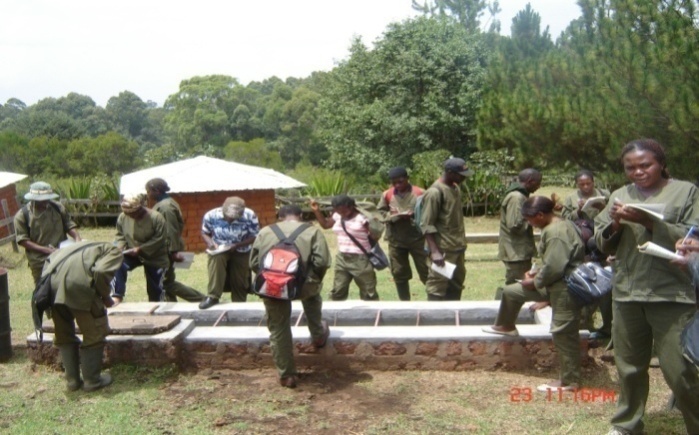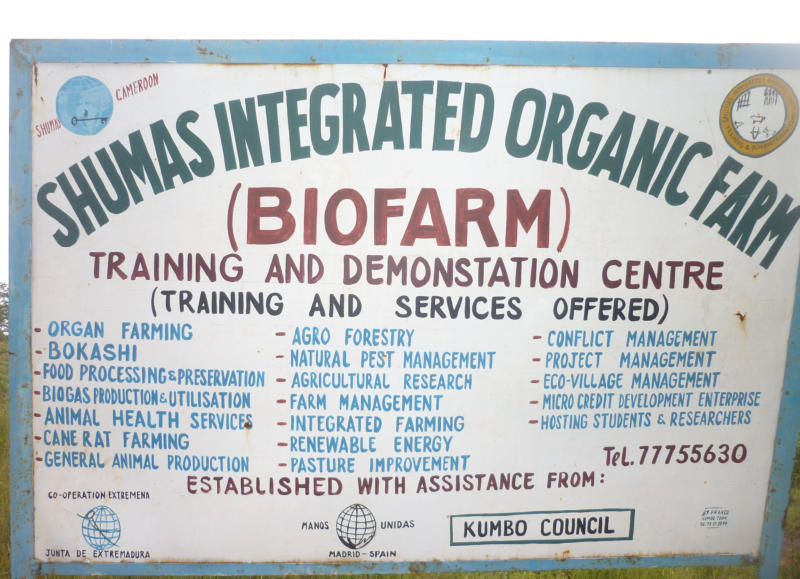The Biofarm
Problem
As a result of declining soil fertility, poor seeds/breeds, improper management techniques, a decrease in farm household sizes, and an increase in population and land pressure, many rural poor farmers are facing low crop and livestock yields. To cope with this situation, they are resorting to farming methods that require costly inputs and improve yields at the expense of the environment and the sustainability of their land and income. These practices include slash and burn, the improper use of synthetic fertilizers/pesticides, and the extension of farmlands by felling forests.


Objective
To contribute to increasing food security and eradicating hunger amongst poor peasant farmers by training them on sustainable and climate-smart agriculture and supporting them with micro-credit and materials to set up their farms. SHUMAS works with community-based farming groups to promote production methods that are both environmentally- friendly and economically viable. This combats rural poverty and food insecurity, protects the environment, and strengthens farmers’ self-sufficiency and economic capacity.
- How it is done
- Achievements:
- Challenges
- Future Plans
- Through training of poor peasant farmers and youths on sustainable agriculture in two ways. First, through short and long courses held at the SHUMAS Biofarm in Kumbo (now relocated to Bamenda due to the Anglophone Crisis), and secondly, through the school environmental program which promotes school gardens and practical agricultural lessons in schools.
- SHUMAS supports farming communities to improve food availability, income level, and general well-being by empowering women farming groups with micro-credit and capacity- building, multiplying maize and potato seeds to distribute to poor farmers at low prices, and promoting urban agriculture.
- Over 14000 poor peasant farmers have undergone training at the BIOFARM.
- Over 60% of the trainees have received support from SHUMAS to enable them set up their own farms.
Despite the successes, there are several challenges that this program faces;
- Funding is a concern because the trainings are meant to be pro-poor and so funding must come from sources other than the participants.
- The training materials are expensive, and so this limits the amount of students who can be trained.
- Demand greatly outstrips supply, both for training and for post- course loans.
- Finally, follow-up with trainees afterwards is difficult given their remote locations and the poor road networks.
With the degeneration of the Anglophone crisis in Kumbo, the BIOFARM had to be closed for over 2 years interrupting the training. The center had to be relocated to Bamenda where training is now taking place under significant difficulties due to lack of structures to support the training in the new location.
- SHUMAS is currently looking at ways of increasing the productivity of the BIOFARM, which would help to address some of the funding issues.
- We equally hope to be able to take on more students each course in the future.
